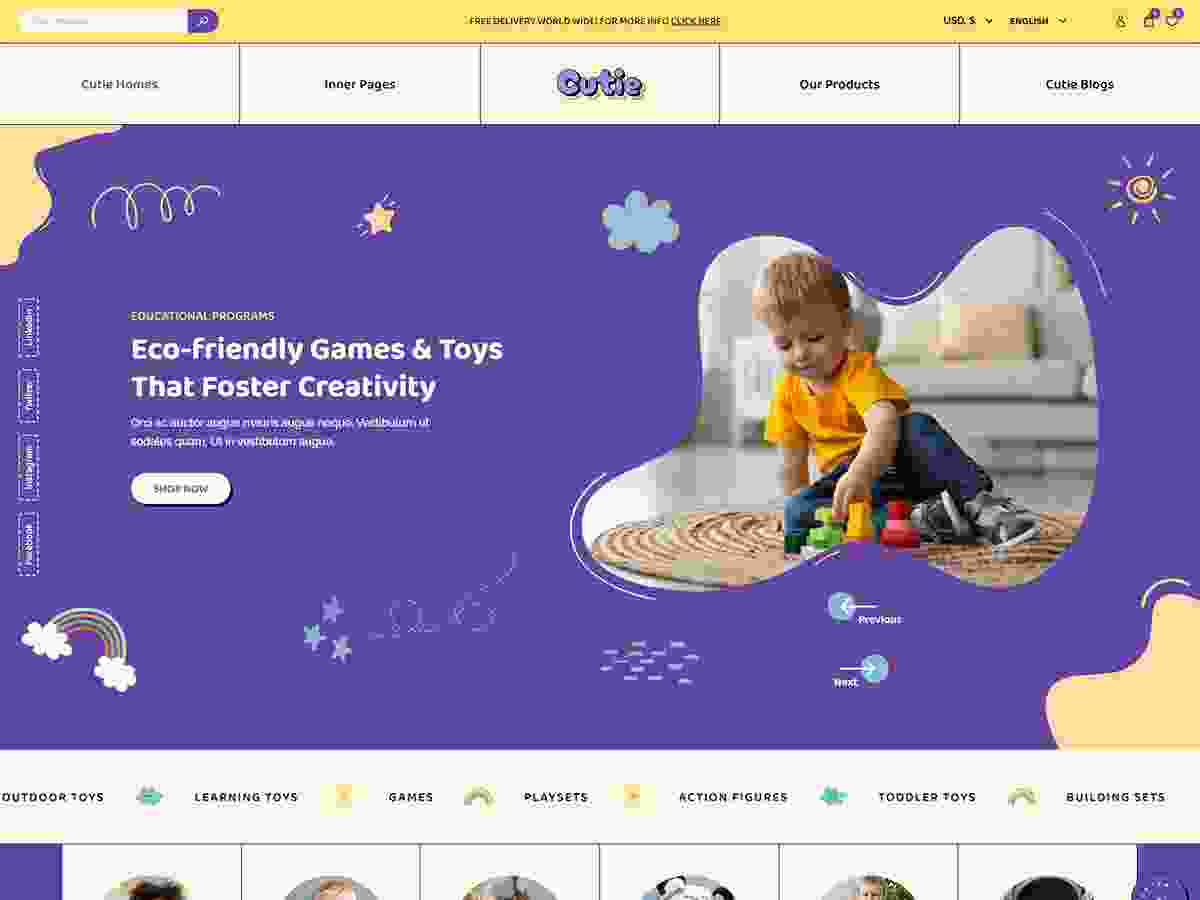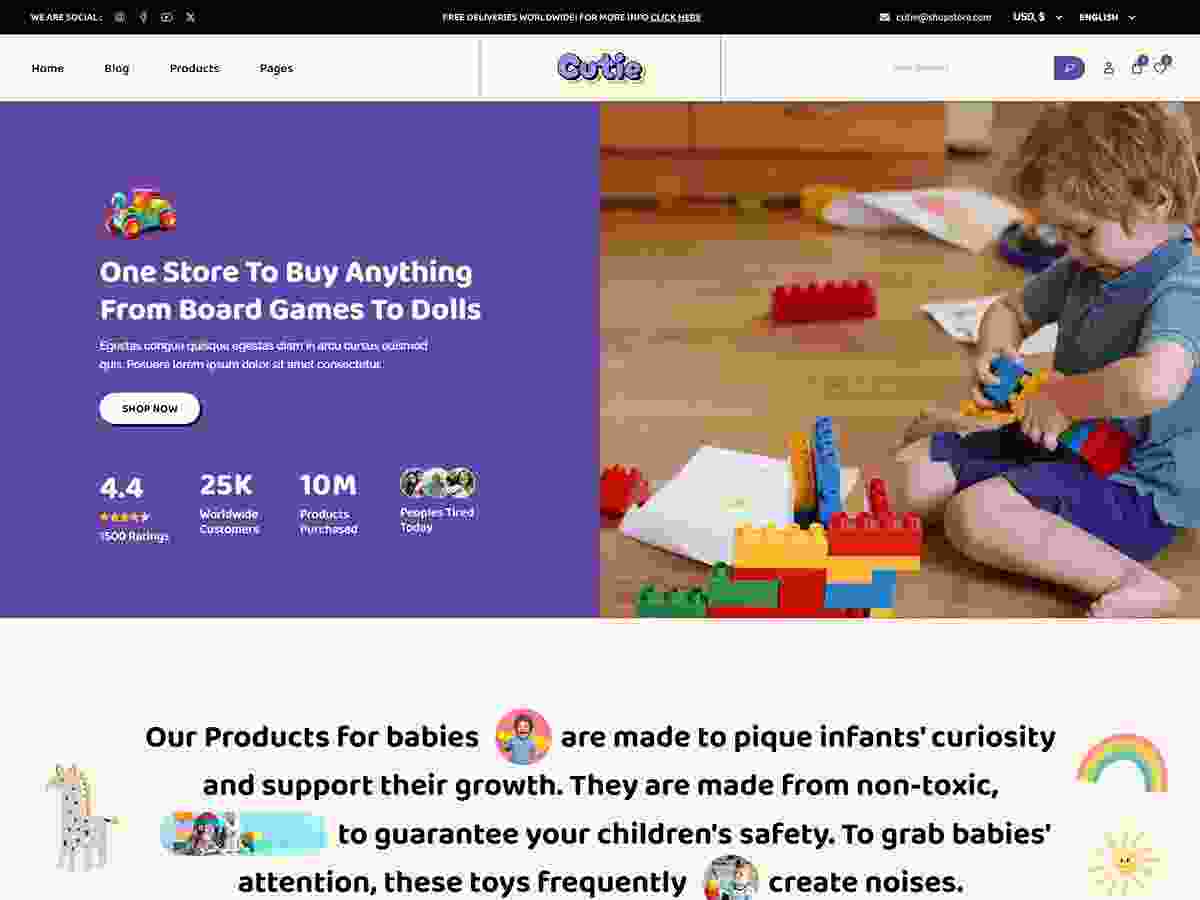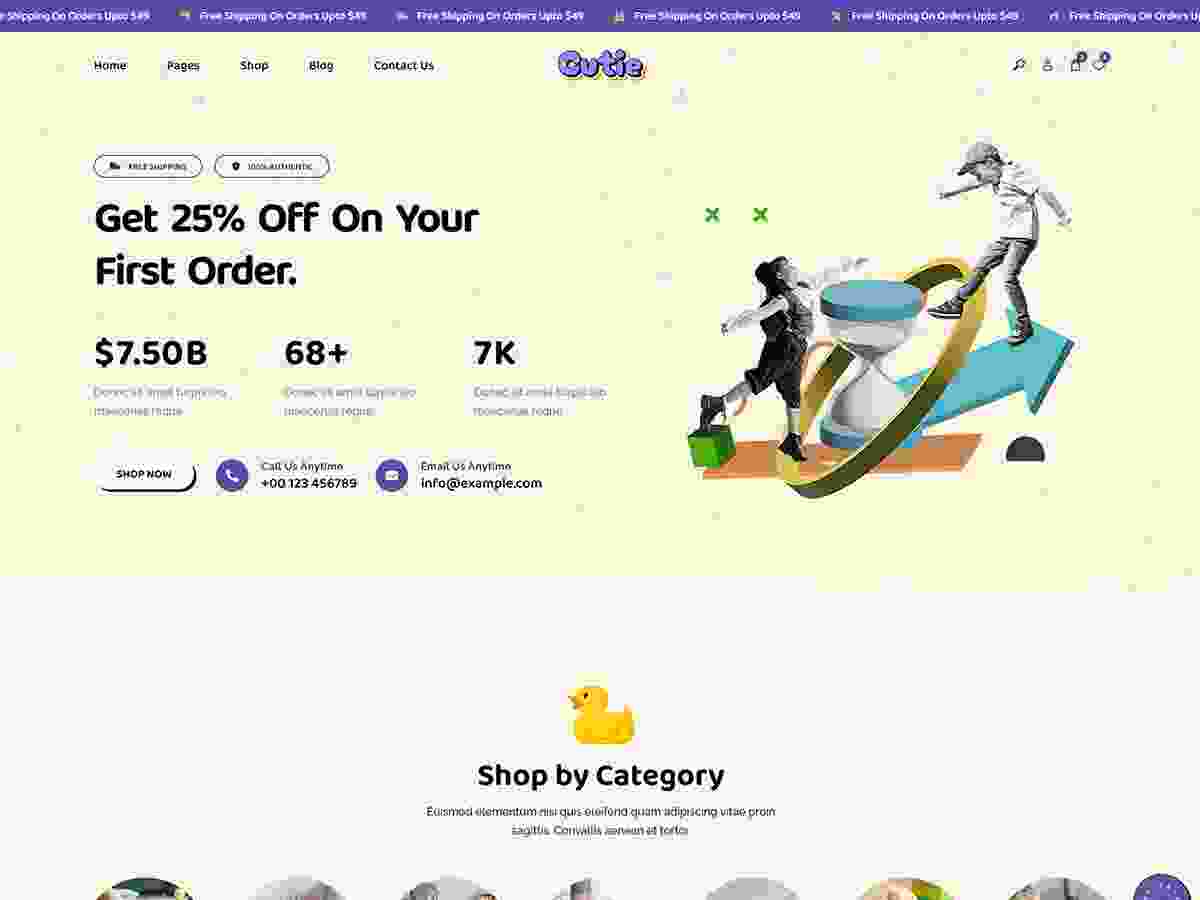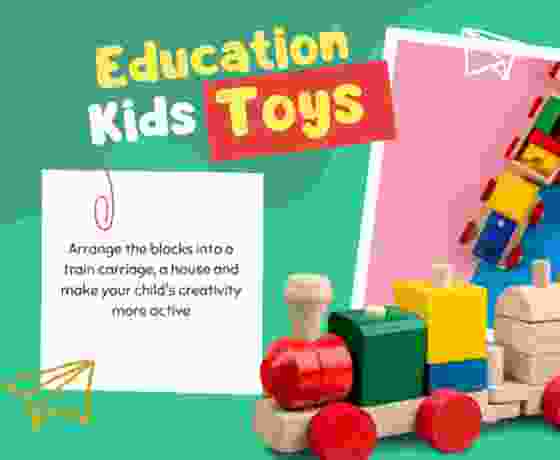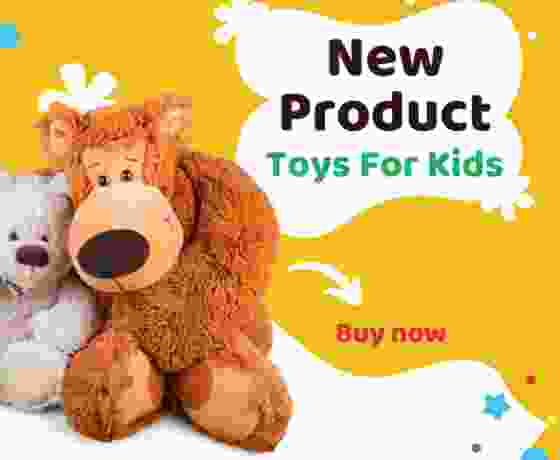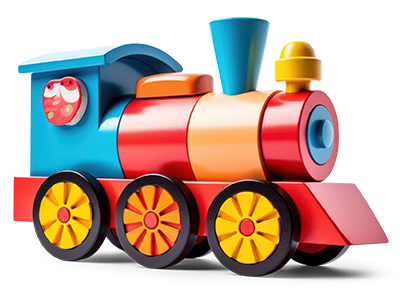No products added!
Children’s academic as well as individual development depend on the family environment being favorable to learning. Families constantly look for tools to help their children on their quest for knowledge in the fast-paced world of today, when learning frequently takes place outside of the educational setting. Worksheets are one resource that has endured over time. These easy-to-use yet effective gadgets give parents a convenient method to include their children in worthwhile educational activities.
Let me present you to KidsWorksheet.net, an online destination for printable and editable worksheets designed to enhance learning at home. Parents may set the kids up for success throughout life by incorporating worksheets into regular activities that foster innovation, discipline, and curiosity.
1. The Science Behind Kids Worksheets
Worksheets are professionally built educational tools, instead of just sheets of paper with activities on them. When children utilize worksheets to repeatedly practice a subject, it strengthens the connections between neurons in their minds, leading to better understanding and recall.
- Cognitive Benefit: Worksheets stimulate the brain’s many functions, including memory, critical thinking, and problem-solving. Kids who do the work on their own are more focused and determined.
- Mastery through Recurrence Mathematics calculations and language abilities are examples of fundamental knowledge that is strengthened by regular practice using worksheets.
- Method Supported by Studies: Studies show that worksheet-based learning can enhance learning outcomes, especially when combined with other methods of instruction.
Families can get worksheets customized to meet their child’s unique learning needs through websites such as KidsWorksheet.net.
2. A Historical Perspective on Worksheets in Education
Worksheets initially served as reinforcing tools in usual classroom settings. Worksheets have evolved to meet the requirements of modern education:
- First Use in Classrooms: The worksheets are straightforward and only need memorization. To figure out if students have understood, the teacher looks at the worksheets.
- Modern Evolution: With concepts, images, and interesting activities, the worksheets have developed into an assortment of dynamic and engaging educational tools.
- Customizable Options: By providing modifiable templates, sites such as KidsWorksheet.net have changed worksheets by allowing parents to create interesting and unique educational resources.
3. The Emotional Impact of Worksheets on Children
Worksheets have an excellent psychological impact on children in addition to being helpful for cerebral growth.
- Building Confidence: When children resolve challenges on their own, their self-esteem increases as they feel motivated to take on new tasks.
- Sense of Achievement: Finishing a worksheet gives you an actual achievement that validates your hard work and persistence.
- Anxiety Stages: Plan-based worksheet activities let students study on their own and lessen the stress of academics.
4. Development of Lifelong Skills with the Use of Worksheets
Children may learn important skills for life via worksheets, like:
- Skills for Organization: Children who use worksheets are more likely to handle their time and logically arrange knowledge. When kids become older and encounter more difficult problems, this capacity comes in very handy.
- Completing worksheets: When children complete their worksheets on time, they come to value hard work and long hours. This will get them ready for these kinds of structured learning environments at school and, later, in future employment environments.
- Thinking Analytically: Problem-solving and critical thinking are fostered via worksheets. Providing activities like logical riddles or math operations that require thought to accomplish, promotes critical thinking.
To ensure that their children are better prepared for success in the future, families may utilize tools such as KidsWorksheet.net to select the particular worksheet that is intended to foster key life skills.
5. Seasonal and Themed Worksheets for Extra Engagement
By using worksheets with topics and seasonal themes, families may make education engaging and relevant:
- Worksheets Based on Holidays: Use festive printables to bring the holidays into the classroom. These consist of Easter painting projects, October math, and Christmas crossword puzzles. Never studying seemed so enjoyable.
- Activities for the Seasons: Use these summer, wintertime, springtime, or fall worksheets to have a conversation about the natural world including the weather. Combining summer vocab activities with an ocean theme and winter scientific tasks that discuss snow would be wonderful concepts.
- Trending Topics: Worksheets relating to current affairs or well-liked hobbies, such as space travel, preservation of the environment, or popular cartoon characters, are examples of trending topics. These topics keep kids interested and linked to the world.
Additionally, KidsWorksheet.net offers an extensive collection of thematic worksheets, ensuring there’s usually something new to learn.
6. Worksheets for Family Bonding Activities
Worksheets may be utilized for bonding with relatives as well as individual learning.
- Collaborative Learning: By helping children solve riddles, trivia questions, or crossword challenges, parents may foster meaningful conversations alongside the children they have.
- Family Game Nights: Turn worksheets into fun contests, such as who can do the most math inquiries in a certain amount of period. This promotes learning while adding a playful component.
- Family Collaboration: To foster collaboration as well as interpersonal skills, allow siblings to work along on collaborative worksheets.
Families may access a vast array of worksheets created for group activities that promote learning and connection by using materials from KidsWorksheet.net.
7. Overcoming Common Misconceptions About Kids Worksheets
Although being an essential component of education, worksheets can be misunderstood. Let’s clear up these misunderstandings:
- Worksheets Are Monotonous: Worksheets currently are all that dull. In order to keep children intrigued, they include interactive features like coloring sheets, puzzles, and practical tasks.
- They’re Just Drills: As opposed to memorizing information, worksheets nowadays encourage originality and solving problems. They promote creativity and analytical thinking.
- Over-Dependence on Worksheets: Learning gets better, not limited, if worksheets are utilized in conjunction with other instructional strategies. Worksheets may be an adaptable tool that supports many teaching philosophies.
The finest method of learning is brought out by KidsWorksheet.net’s dynamic, stimulating, and far-from-boring worksheets.
8. Modifying Worksheets for Bilingual or Multilingual Homes
Worksheets are a great resource for families speaking multiple languages:
- Language Acquisition: Worksheets present new vocabulary, grammar, and sentence structures engagingly. Bilingual children can practice both languages at the same time.
- Bilingual Worksheets: Parents can find or create worksheets that present activities in two languages, promoting fluency and comprehension.
- Cultural Integration: Worksheets on cultural issues from various regions can help children familiarize themselves with their heritage, learning at the same time.
KidsWorksheet.net offers variable tools that can be created by parents for multilingual worksheets, in accordance to the family’s specific lingual needs.
9. Role of Parents Regarding Worksheet-Based Learning
Indeed, parents are the pivot for maximizing worksheet benefits; without them, activities cannot come to fruition and children often run off track, failing to wholly understand the material.
- Guidance and Motivation: Parents are the motivator who ensures kids approach worksheets with zest. The provision of encouragement develops confidence within kids and results in optimal learning.
- Observation of Progress: Parents who closely observe how their child interacts with worksheets can identify strengths and challenges. This allows for timely intervention or extra support when needed.
- Balanced Approach: Combining worksheets with play ensures a child does not feel overwhelmed while maintaining the excitement for learning. KidsWorksheet.net provides tips to create this balance effectively.
10. Worksheets as a Bridge Between Play and Learning
Worksheets uniquely blend the components of play and learning to make education fun.
- Gamified Learning: KidsWorksheet.net offers worksheets that integrate the elements of gaming, such as treasure hunts, mazes, and fun challenges. Such activities promote critical thinking but keep engagement.
- Story Integration: Storytelling-themed worksheets immerse children in narratives, making concepts such as math or science more relatable and enjoyable.
- Creativity Building: Puzzles and worksheets that involve crafts help children imagine and learn how learning can be very academic and artistic.
11. Budget-Friendly Learning with Worksheets
Educational resources are costly, but with worksheets, it is possible to learn the same things without spending money.
- Cost-Effective Solutions: Many websites, such as KidsWorksheet.net, offer free and budget-friendly options to make quality education accessible to all families.
- Reusable Worksheets: Laminating worksheets allow multiple uses, reducing paper waste and expenses. Alternatively, parents can use whiteboard-compatible worksheets for endless practice sessions.
- Digital Formats: Switching to digital worksheets eliminates printing costs combining convenience with sustainability.
12. Organizing and Storing Worksheets at Home
A well-organized worksheet library can enhance the learning experience.
- Categorization: Organize worksheets by subject, grade level, or topic to ensure quick access.
- Storage Tips: Organize worksheets in binders, folders, or digital organizers. KidsWorksheet.net offers free printable templates to help label and categorize.
- Dedicated Learning Space: Set up a clutter-free space for worksheet activities so that children associate the space with concentration and productivity.
13. How to Assess the Effectiveness of Worksheets
Monitor progress to ensure worksheets meet learning objectives.
- Review Completed Worksheets: Evaluate your child’s performance on different assignments and pinpoint areas that still pose a challenge.
- Follow Skill Development: Observe positive changes in certain skills such as math accuracy or reading.
- Adjust Difficulty Levels: The subsequent worksheets should be suited according to the child’s rate, gradually increasing in intensity according to their progress.n
14. Using Worksheets in Social Skills Development
Worksheets are a significant contributor to social skills development.
- Group Activities: Encourage collaboration by doing group tasks through worksheets to develop teamwork and communication skills in kids.
- Role-Playing Exercises: KidsWorksheet.net has worksheets that help kids understand scenarios with empathy, problem-solving, and social awareness.
- Peer Interaction: Worksheets shared or solved together enhance cooperative learning and friendship building.
15. Combining Worksheets with Other Educational Methods
Worksheets alone can transform education when combined with other methods.
- Hands-on Experiments: For sciences, worksheets complemented by straightforward experiments help reinforce theoretical work. For instance, immediately after solving a science worksheet about plants, children can begin growing a seed and monitor its changes.
- Interactive Apps: Many applications, such as digital flashcards or math games, interact well with worksheets to enhance the learning process. KidsWorksheet.net advises such combinations for best results.
- Creative Storytelling: Using worksheets as a base, parents and children can create stories and make lessons fun, collaborative creative activities. This makes them retain and understand better.
16. Designing Worksheets for Individual Learning Styles
Kids do better with material tailored to their individual preferences.
- For Visual Learners: Incorporate diagrams, flowcharts, and mind maps that work better for kids who can assimilate information better through images.
- For Auditory Learners: Add interactive questions or prompts that can be read aloud or discussed to the worksheets to make tasks more engaging.
- For Kinesthetic Learners: Interactive worksheets with space for cutting, drawing, or assembling parts add a physical dimension to learning and keep hands-on kids motivated.
- Diverse Tasks: KidsWorksheet.net provides templates where parents can customize worksheets to fit their child’s learning preferences.
17. Celebrating Milestones with Worksheets
Rewarding children for achievements boost their morale and willingness to learn.
- Reward Charts: Use completed worksheets to fill out a star chart. When filled, the kids can be rewarded with something like going out or a new toy.
- Certificate of Achievement: KidsWorksheet.net offers free templates where parents can modify certificates commemorating small achievements, like mastering multiplication or finishing a reading set.
- Show Your Success: Keep all the completed worksheets ready for display in a “Wall of Fame” and get the kids proud to produce more.
18. Environmental Friendly Practices with worksheets
Environmental concerns are taking shape, and worksheets too can be used in environment-friendly practices.
- Paperless worksheets: Take online or PDF worksheets, which save paper; for instance, KidsWorksheet.net provides a wide range of environmentally friendly digital options.
- Recycled Printing: Print worksheets on the back of scrap paper or recycled materials. Kids can also repurpose printed worksheets into craft projects or journals.
- Reusability: Laminate worksheets or place them in transparent folders for use with dry-erase markers, ensuring they can be reused multiple times.
19. Fun Challenges and Competitions with Worksheets
Turning worksheets into games adds excitement and fosters a love for learning.
- Time Trials: Set your timers to see how soon the kids can get everything right, making learning active and fast-paced.
- Innovative Competitions: Use open-ended problems and encourage children to think ‘out of the box. Reward the most innovative or colorful solutions.
- Family Competitions: Engage siblings or a parent in solving worksheets together – a lively, interactive means of learning.
- Seasonal Challenges: Create themed competitions as in completing Halloween worksheets when kids can win small rewards and increase engagement.
20. Community and Peer Sharing of Worksheets
Worksheets can help create a connection in local and online communities.
- Local Sharing Groups: Organize worksheet exchange programs where parents can share or swap their collection of worksheets. KidsWorksheet.net can facilitate connections by offering downloadable templates and guides.
- Collaborative Learning: Organize for children to work on group worksheets with their peers during playdates or virtual meetups. This builds teamwork and social engagement.
- Online Forums: Join communities like the parent forum of KidsWorksheet.net, where families share tips, worksheets, and success stories. Parents can upload and download worksheets from others to supplement their collection.
Conclusion: Empowering Learning Through KidsWorksheet.net
Worksheets serve as essential resources for kids’ learning and development as individuals since they strengthen fundamental information and improve their mental skills. They encourage creativity and critical thinking and can be augmented with games, narrative-based, or aesthetic. They may be adjusted to accommodate various styles of learning, including tactile, visual, auditory, and visual learners. Worksheets can be altered by parents to suit their kid’s preferred method of learning. Furthermore, worksheets may be utilized in eco-friendly ways including reusing, recycling, and becoming paperless. Via online forums, interactive education, and sharing groups, they may also help build connections in local and online networks. Parents gain confidence and preserve a healthy balance between play and learning if they make sure they approach workbooks with passion. All things considered, worksheets are an effective and affordable teaching aid for kids.
FAQ’s:
Q: Why should I use worksheets from KidsWorksheet.net?
KidsWorksheet.net is a trustworthy resource for parents since it provides a large selection of excellent, interesting, and adaptable worksheets for all ages and themes.
Q: Do worksheets follow the curricula of the schools?
Although a lot of worksheets are made to fit into regular school curricula, it’s wise to make sure they match your child’s curriculum.
Q: How can I use worksheets to monitor my child’s progress?
Completed worksheets should be kept in a binder and reviewed on a regular basis to pinpoint areas of strength and growth.
Q: If my child finds worksheets uninteresting, what should I do?
Avoid giving your child too many exercises at once, add diversity, and try utilizing worksheets that are themed or gamified.
Q: Is it possible to make worksheets at home?
Yes, you can create do-it-yourself worksheets with basic supplies like paper and markers or with free internet worksheet generators and templates.
Q: Are worksheets appropriate for learning in groups?
Indeed, a lot of worksheets promote cooperation and teamwork, which makes them perfect for family or group activities.
Q: In what ways do worksheets facilitate learning without a screen?
With the tactile, hands-on experience that printed worksheets provide, kids can stay interested without using electronic devices.
Q: Where can I get my child’s free worksheets?
Free printable and downloadable worksheets are frequently available on websites such as KidsWorksheet.net, educational blogs, and online learning platforms.
Q: What equipment or supplies are necessary for me to utilize worksheets efficiently?
For printed worksheets, simple supplies like pencils, erasers, and crayons are typically adequate; for digital worksheets, a tablet or computer is needed.
Q: Do children with special needs have access to worksheets?
Of course. Children with autism, dyslexia, ADHD, and other requirements can use specialized worksheets that are tailored to their individual learning preferences.
Q: How can I engage my toddler with worksheets?
Utilize worksheets with themes and colors, make them into games or challenges, and use little rewards to recognize success.
Q: Is it possible to modify worksheets to meet my child’s specific needs?
Indeed, a lot of sites include worksheets that can be customized, enabling parents to adjust the content to suit their child’s skills and interests.
Q: Which topics are covered in worksheets?
Math, physics, language arts, general knowledge, and creative abilities like storytelling and painting are just a few of the topics covered in the worksheets.
Q: What are some ways to determine which worksheets are suitable for my child?
Seek out worksheets that correspond with your child’s hobbies, grade level, and particular learning objectives. For ease of choosing, a lot of websites classify them, such as KidsWorksheet.net.
Q: Do worksheets in digital format function as well as those in print?
Both function well; paper worksheets offer a hands-on experience, while digital worksheets are engaging and environmentally sustainable.
Q: How frequently should I give my child worksheets?
The age and learning objectives of your child will determine this. While older children can participate for longer periods, smaller children should only spend 10 to 15 minutes a day.
Q: Can worksheets take the role of textbooks or in-class instruction?
No, worksheets are supplementary resources designed to support and enhance classroom instruction or textbook study.
Q: In what ways might worksheets improve my child’s learning?
Through repeated and diverse exercises, worksheets strengthen concepts, increase recall, and foster critical thinking.
Q: Which age range may use worksheets?
Worksheets may be tailored to each developmental stage and are accessible for all age groups, from babies to middle school pupils.
Q: How do children’s worksheets operate and what are they?
Children’s worksheets are organized learning resources that include activities meant to impart particular knowledge or abilities. They function by offering practice in an interesting and targeted manner.
56
